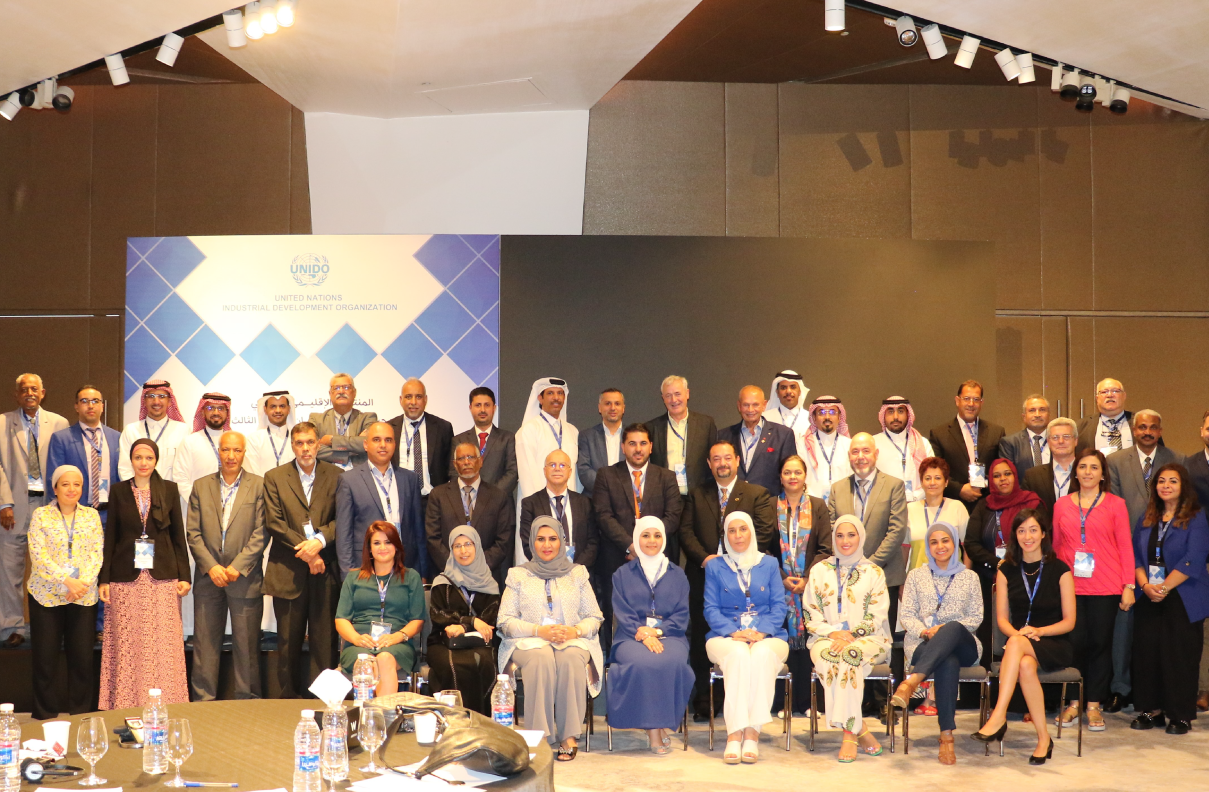
EIAC attended ISO meetings
The Chief Executive Officer (CEO) of Emirates International Accreditation Centre (EIAC), Ms. Amina Ahmed Mohammed and other staff members attended the ISO annual meetings held on 19-23 September 2022 in Abu Dhabi, UAE. Ms. Amina who is also the Chair of Arab Accreditation Cooperation (ARAC) participated as panelist in the ISO Session titled “Has covid launched the digital transformation of conformity assessment “. Mr. Marcus Long Chief Executive of Independent International Organisation for Certification (IIOC) was the moderator of this ISO session.
During a Q & A session, she said the accreditation community did organize itself promptly as soon as the pandemic was announced, fast response working groups were created, and both organizations shifted their work to remote work and applied their extraordinary event procedures that existed before the pandemic. ILAC and IAF did also make sure that the confidence in conformity assessment result is preserved especially during the pandemic where these services are sometimes literally vital. A website was created to collect questions and publish FAQs and guidance, this allowed Conformity Assessment Bodies (CABs) and stakeholders from around the world to continue providing their services in a harmonized and effective way.
She further said, facing to such extraordinary event, there was surely a need to harmonize practices worldwide, that’s why ILAC, IAF and the regional Accreditation Groups did promptly establish the mechanisms to have an agreement on the way to continue providing CA services while preserving the confidence in the Multilateral arrangements. This is not limited to the pandemic situation. The pandemic did maybe accelerate the process, but the accreditation community was since many years harmonizing its digital work and the adaptation to new technologies imperatives.
In response to another question she said, the main purpose of accreditation is to provide confidence in the competence of the conformity assessment services provided within the national, regional and global quality infrastructure. By building this trust, accreditation facilitates trade, allows for comparability of results worldwide, and hence consumer protection and economic growth. With the development of new schemes and emergence of new industries that require conformity assessment activities, accreditation adapts by gathering the experts from around the world to establish the chain of trust and cover it by it Multilateral recognition arrangements.
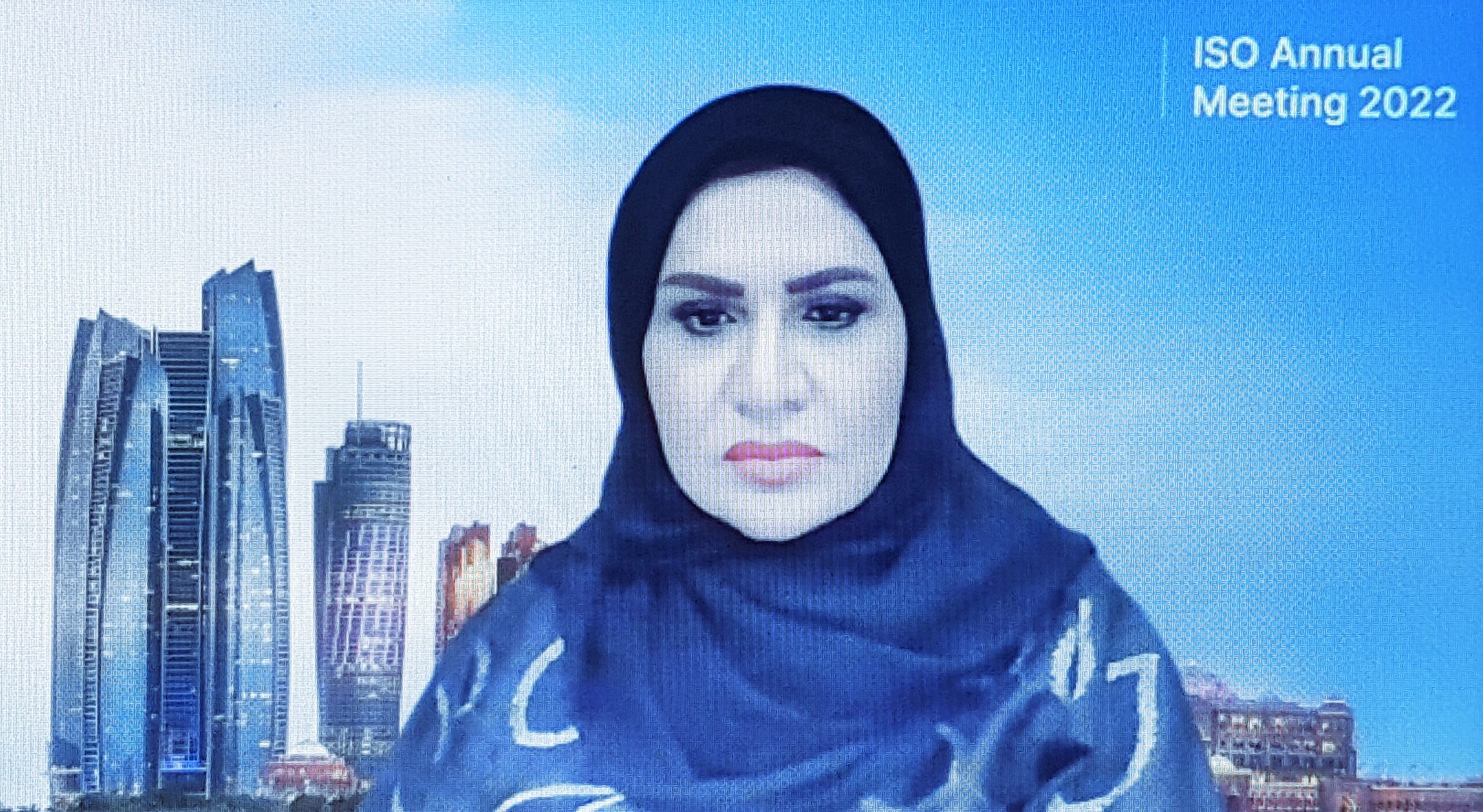
Photo: EIAC CEO participating in ISO panel discussion.
EIAC accredited Kazakhstan Standards for Halal Certification
Emirates International Accreditation Centre (EIAC) accredited the Halal Certification Department of Kazakhstan Institute of Standardization and Metrology according to UAE halal standards. Ms. Amina Ahmed Mohammed CEO of EIAC presented the accreditation certificate in presence of Prime minister of Kazakhstan His Excellency Alikhan Smailov and Minister of Energy of UAE His Excellency Suhail Mohamed Al Mazrouei in a prestigious ceremony held in Emirates Palace Abu Dhabi.
Prime Minister of Kazakhstan along with his delegation was on a working visit to the UAE.
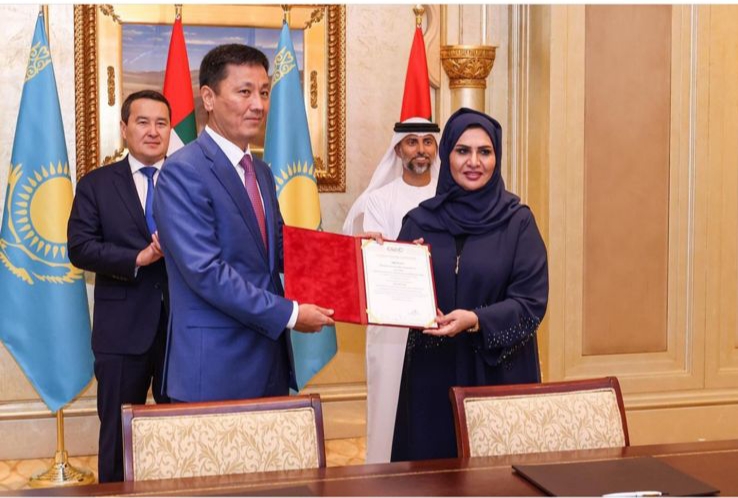
Photo: EIAC CEO presenting accreditation certificate to KAZ standards.
Ras Al Khaimah Police – the first Forensic Investigation Unit in Gulf Region to get accreditation according to the ISO/IEC 17020
The Emirates International Accreditation Centre (EIAC) has granted accreditation to the Forensic Investigation Unit of Ras Al Khaimah (RAK) Police in accordance with the ISO/IEC 17020 for the scopes of Questioned Documents, Fire and Arson Investigation, Forensic Autopsy & Histopathology, Clinical Forensic Medicine and Women and Child Examination. Ras Al Khaimah police is the first police unit in gulf region that got ISO/IEC 17020 accreditation for the subject scope.
Ras Al Khaimah is one of the seven Emirates of United Arab Emirates (UAE) and is known for its pharmaceutical, ceramics, cement industries, international trade through RAK Ports. Tourism is also a booming sector in Ras Al Khaimah. Its sandy beaches and islands attract hundreds of thousands of tourists every year.
EIAC received approval from ISQuaEEA
The External Evaluation Award Committee (EEAC) of the International Society for Quality in Health Care External Evaluation Association (ISQuaEEA) has endorsed the
EIAC Accreditation Standard for Healthcare Providers after independent assessment.
The EIAC Accreditation Standard for Healthcare Providers covers the scopes of Hospitals, Clinics, Day Surgery Centers, Fertility Centers, Home Health Services, Medical Tourism and Telehealth Services.
Arab regional forum on voluntary Third-Party Assurance (vTPA)
EIAC CEO participated in Arab Regional Forum on Voluntary Third-Party Assurance in Food Sector Approach and Modalities in the Arab Region, which was held in Amman, Jordan.
The forum was conducted by the United Nations Industrial Development Organization (UNIDO) in cooperation with the Arab Industrial Development, Standardization and Mining Organization (AIDSMO) and Swedish International Development Cooperation Agency (Sida). Ms. Amina Ahmed Mohammed CEO of EIAC and Chair of Arab Accreditation Cooperation (ARAC) addressed the forum. She gave overview of the food safety quality assurance programs in the arab region. She informed the participants that a similar voluntary Third-Party Assurance (vTPA) certification scheme for Food establishments/ Food Business Operators (FBOs) was introduced in Dubai in 2008. The scheme was based on Codex Alimentarius CAC/RCP 1-1969 and regulatory body Food Control Department’s Requirements. She informed that Emirates International Accreditation Centre (EIAC) which was known as Dubai Accreditation Department (DAC) at that time initiated and started the accreditation scheme for third party food safety management systems certification bodies to certify food establishments/ Food Business Operators (FBOs) for HACCP based requirements. She said the EIAC’s experience can be utilized throughout the region in this regard.
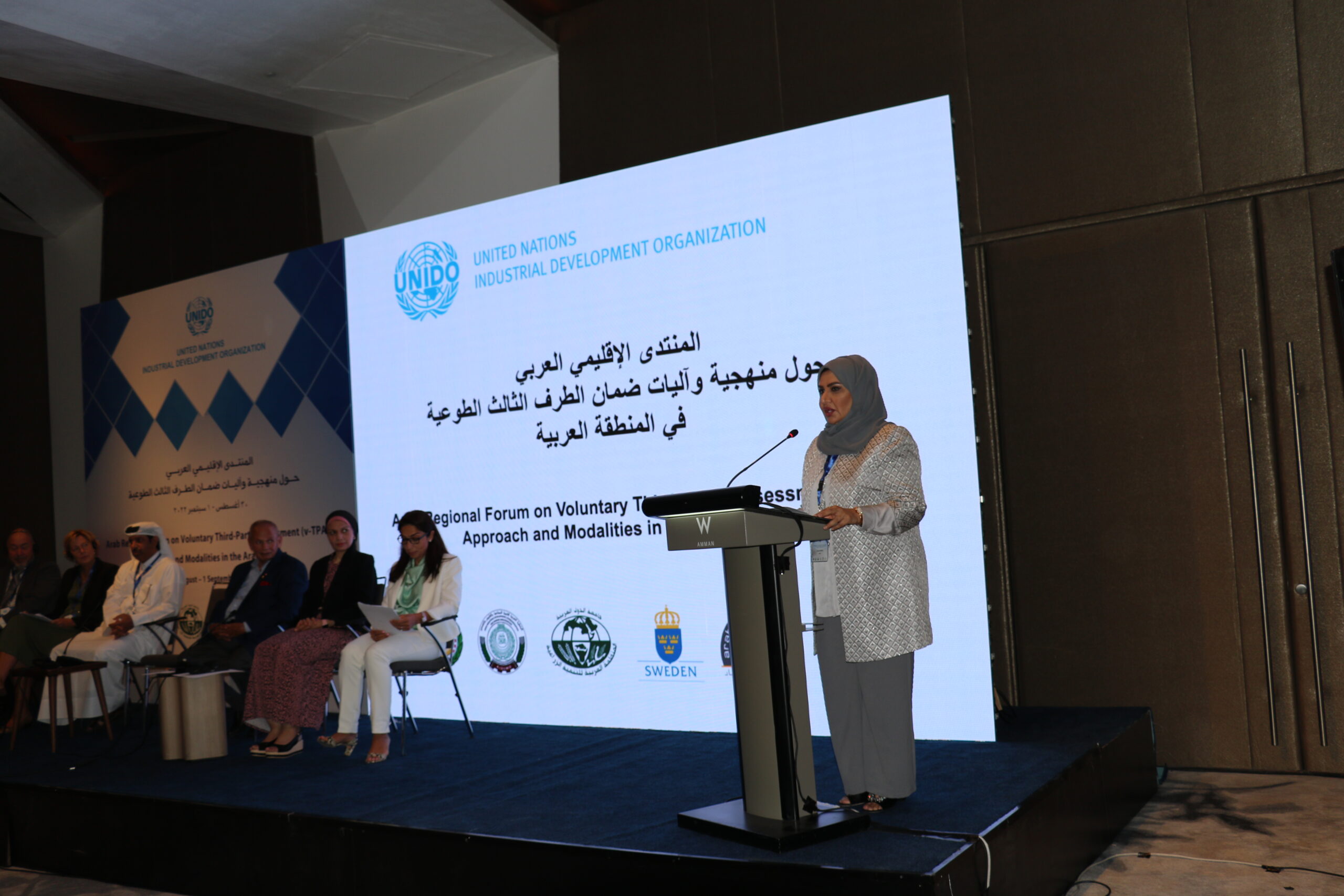
Photo: EIAC CEO addressing Arab regional forum on vTPA.
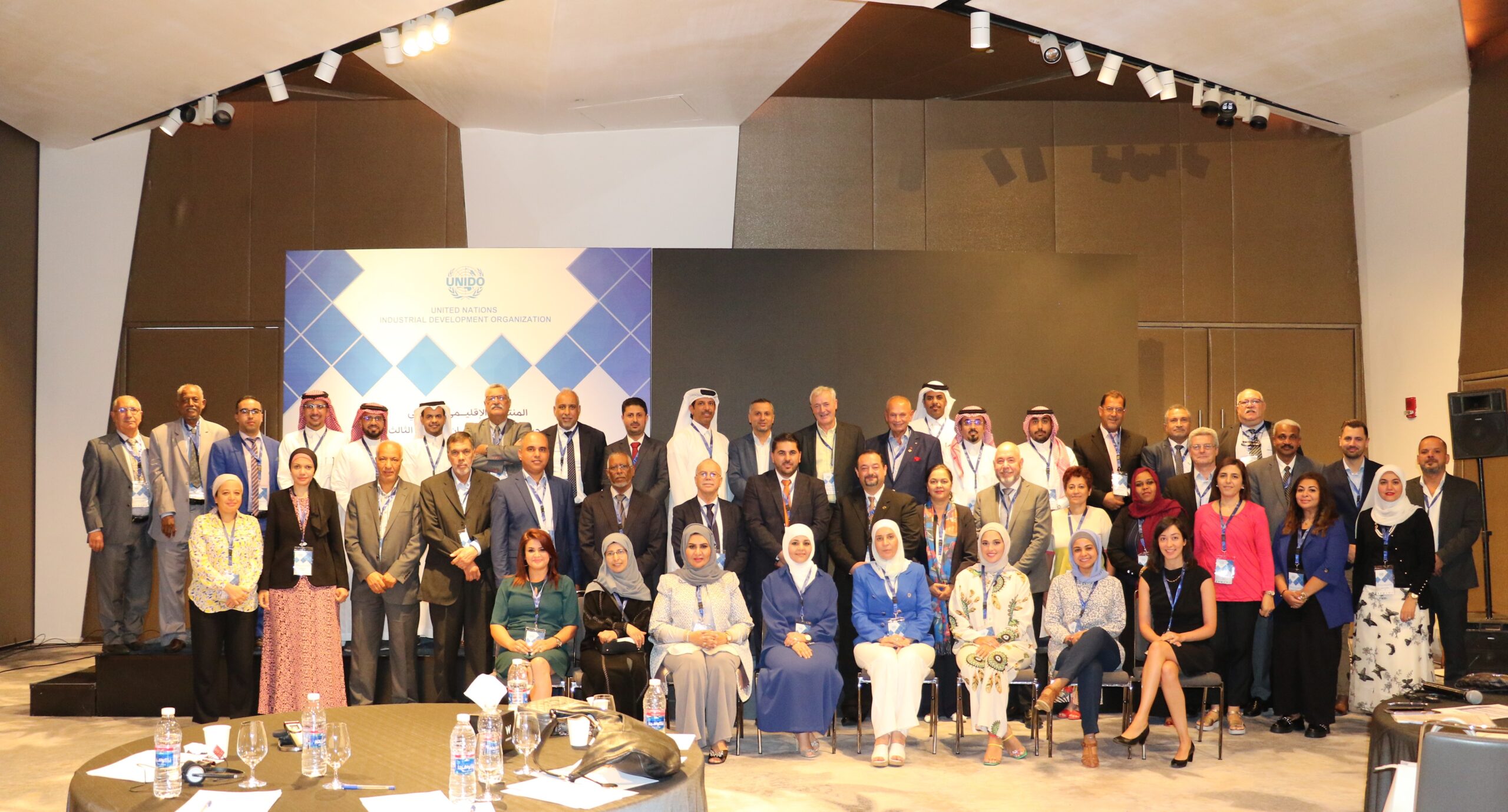
Photo: Arab regional forum group photo.
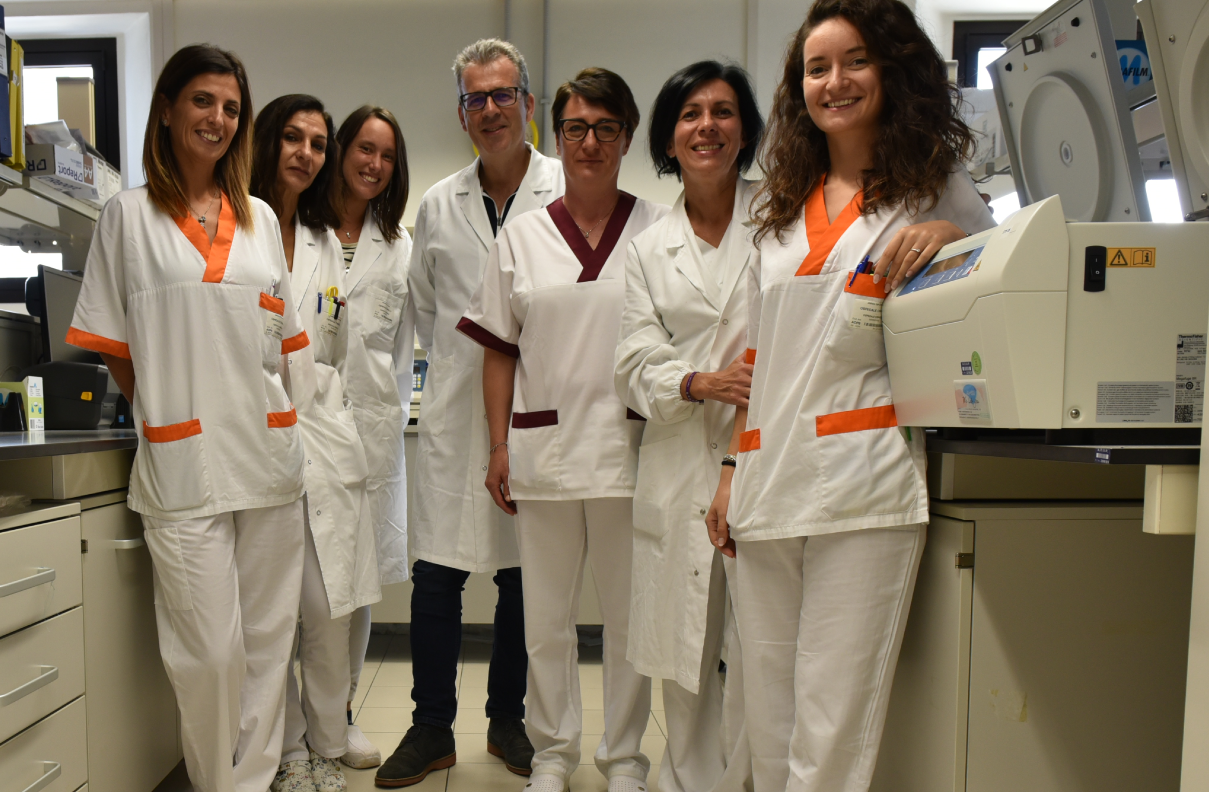
The Multi-specialistic Biobank of the Pisan University Hospital has obtained accreditation in the biobanking of biological material of human origin. An important milestone, the result of international work and institutional dialogue.
A research biobank is a facility that collects, stores and manages biological material and related clinical data in an organized manner for research purposes. Biological material is an essential asset for the progress of biotechnology, an emerging sector on a world scale, which, according to OECD estimates, will have a huge weight on the world economy in 2030 and will account for 2.7% of global GDP overall.
Research biobanks have a wide impact and those who use deposited materials require guarantees regarding the collection, transport, storage, traceability and distribution of these materials. For the progress of research, it is therefore essential that the biological materials deposited are of quality, and that they are managed by the biobanks in order to ensure the reproducibility and comparability of the research results, through standard processes and procedures.
These needs are met by the accreditation of biobanks according to UNI ISO 20387:2019 “Biotechnologies – “Biobanking” – General requirements for biobanking”, specifying the general requirements of competence, impartiality and consistent functioning of the structures. The standard defines a broad framework of reference shared internationally for the collection, storage and subsequent use of samples, and represents the reference for requesting and obtaining accreditation.
On 14 July, the first Italian Biobank – the Multi-speciality Biobank of the Pisan University Hospital – obtained accreditation in compliance with UNI ISO 20387. The assessment process involved an assessment team with expertise in both biobanking and biological material of human origin, in the field of quality management systems, IT and information security, privacy and GDPR. The assessment was carried out on a documentary level and through on-site verification. It is the first Italian biobank to obtain this very important recognition.
The accreditation scheme and related regulations were developed by the Calibration Laboratories Department of Accredia, in collaboration with the National Institute of Health in Italy (ISS – Istituto Superiore di Sanità) and the Testing Laboratories Department of Accredia. The support of a Technical Consultation Table specifically set up and composed of the main institutions involved is also fundamental: Ministry of Health, Ministry of Agricultural, Food and Forestry Policies, National Institute of Health in Italy, Association of Zooprophylactic Institutes, Council for Research in Agriculture and analysis of the agricultural economy, BBMRI – Italy, National Institute of Metrological Research, JOINT RESEARCH UNIT MIRRI-IT, National Order of Biologists, RIBES.
A result achieved thanks to the collaboration between Accredia and the Ministry of Health with the launch of a Pilot Project which in 2021 involved three Biobanks belonging to three Scientific Institutes for Research, Hospitalization and Healthcare (IRCSS) in the preliminary assessments in compliance with the standard UNI ISO 20387.
Accreditation provides a clear and reliable index of the capabilities and adequacy of the structure in terms of competence, impartiality and consistent functioning, in line with the international standard. Furthermore, the assessment process preparatory to the issue of the accreditation certificate provides valuable information to support the Biobank in the fundamental process of simplifying the procedures, favouring a potential saving of time and money.
As for the results, accreditation increases confidence in the production of the biobank and ensures that interested parties comply with the crucial requirements, contributing to the progress of scientific research in the sector.
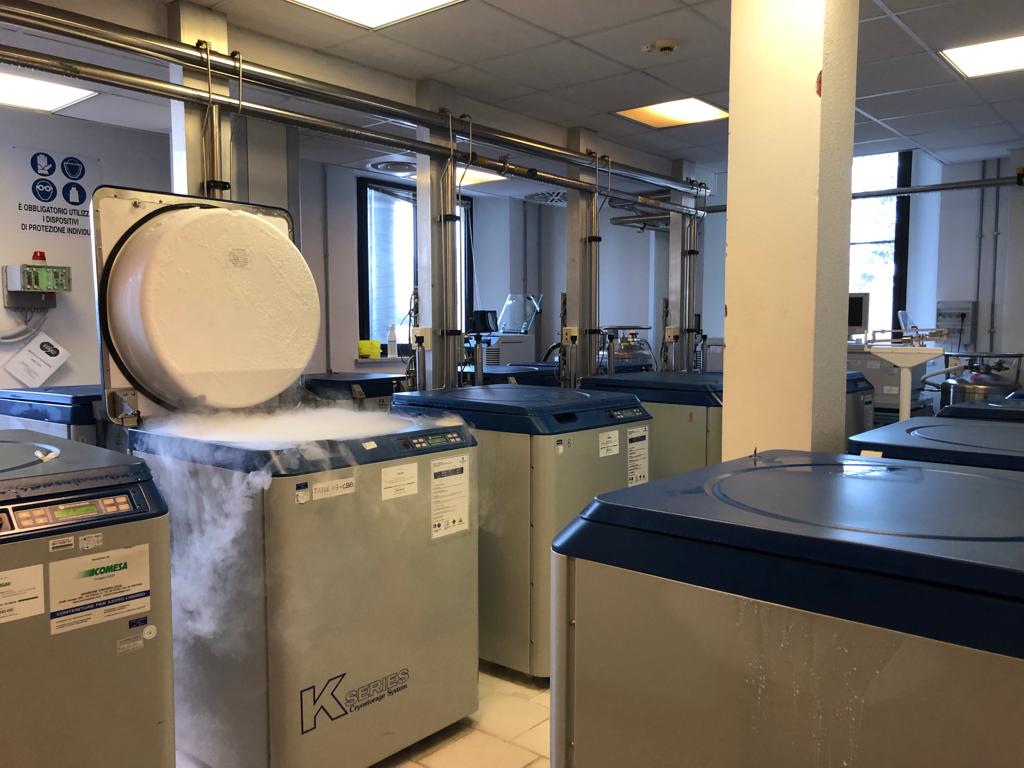

Chinese delegation introduced the proficiency testing project for lithium battery UN38.3 inspection organized by China National Accreditation Service for Conformity Assessment (CNAS) in the form of information document at the 60th United Nation Committee of Experts on the Transport of Dangerous Goods on June 28, 2022. A proposal was also made on further clarification on some unclear description of test requirements in relevant United Nation standard.
Representatives from many countries agreed with the content of the document, and expressed their willingness to establish a dialogue mechanism with the Chinese side and relevant laboratories to jointly study and solve the problems existing in the current technical standard.
Download the document here.

The Cofrac has opened the accreditation for the inspection bodies in charge of social and medico-social establishments and services (SMSES) assessment.
In France more than 45,000 SMSES care for old people, disabled persons or persons with specifics difficulties. A reform provides the French High Authority of Health (HAS) the responsibility to create a new assessment plan and review the recognition method for the bodies in charge of it. The aim of this reform thanks to accreditation is to measure the quality of the services delivered to people by the SMSES.
The assessment plan relies on the decree nr 2022-742 which makes accreditation mandatory for this activity and presents this assessment process set by the HAS.
On the 16th of May 2022, the Cofrac opened the accreditation for inspection bodies according to the ISO/IEC 17020 standard. To start this reform, the aforementioned decree allows the inspection bodies to assess the SMSES as soon as they get involved in an accreditation process. In particular, the Cofrac has developed a plan in two parts:
The inspection body has a maximum period of 18 months from the date of its positive operational admissibility to obtain its accreditation.
The accreditation scheme is fully operational. A significant number of inspection bodies applying for accreditation have already entered the accreditation process.
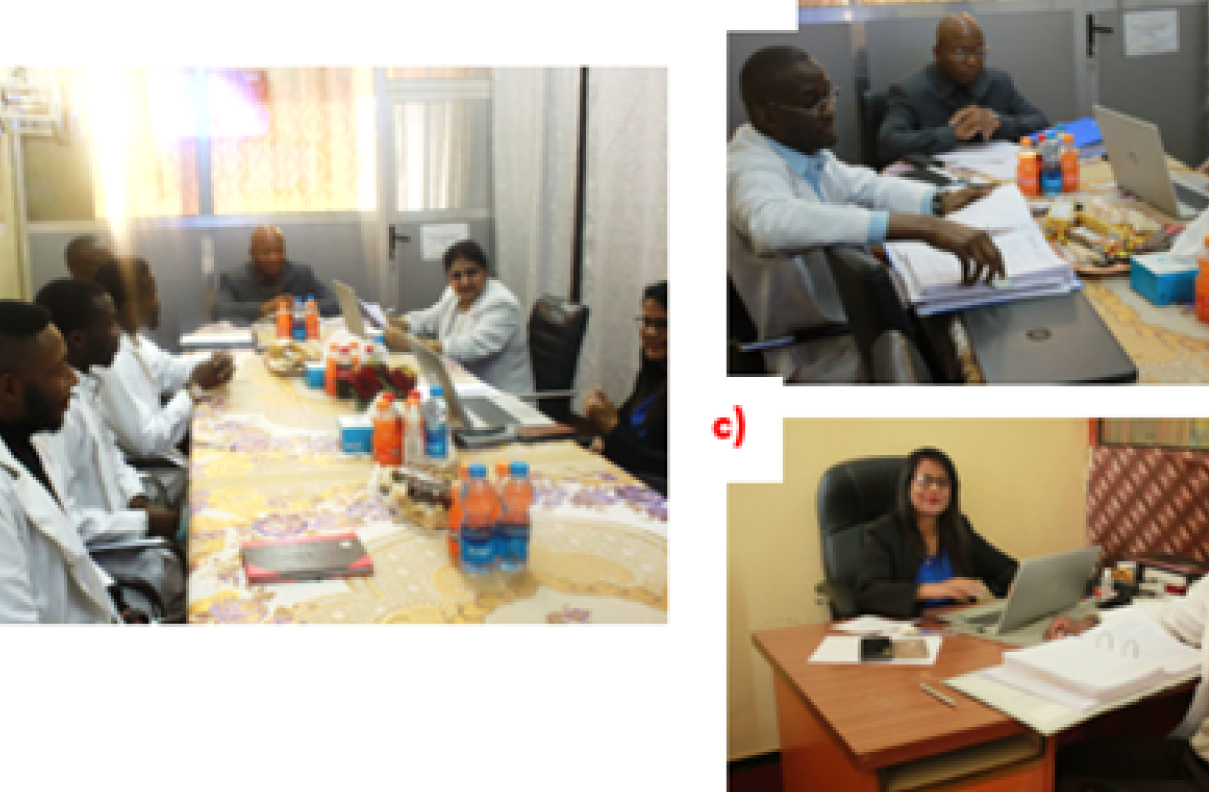
The Environmental Analysis Laboratory (LAE) is the first university laboratory in the Democratic Republic of Congo to be accredited by SADCAS according to the requirements of the ISO/CEI 17025:2017 standard since September 2021 (accreditation number: TEST- 50063). Its field of activity concerns environmental analyses: air, water, soil and waste.
The LAE’s mission is to provide scientific expertise and develop knowledge to know the quality of the environment in order to develop society in a sustainable way. As such, it offers in the field of the environment, management and sustainable exploitation of natural resources: training, research, professional supervision and expertise for the benefit of industrialists.
The first assessment of the LAE by SADCAS took place on Monday, September 12, 2022 in face-to-face. The LAE thus becomes the first SADC laboratory to undergo a post-COVID assessment by SADCAS.
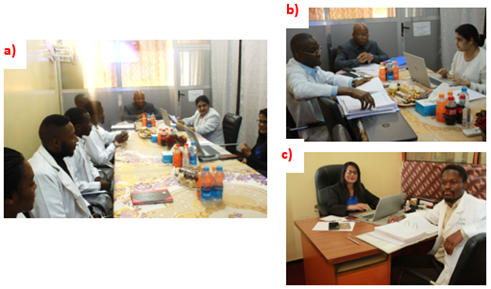
a) Opening meeting with all LAE staff;
b) Working session: assessment of the LAE management system;
c) Working session: technical evaluation.
All chapters (management and technical) of the system have been assessed against the requirements of the international standard ISO/IEC 17025:2017 and the additional requirements of SADCAS/ILAC/IAF.
The vertical evaluation and the witnessing were the subject of the technical evaluation. At the end, two new technical signatories have been successfully assessed and their approvals are in progress. A few discrepancies were noted by the evaluation team and a corrective action plan was submitted for approval.
In view of the low number of non-conformities encountered, the LAE hopes to maintain its accreditation.
The head of the LAE, Prof. Arthur KANIKI particularly thanks the Rector of the University of Lubumbashi, Prof. Gilbert KISHIBA for his support as well as Dean Jean-Marie KANDA for his support. He commends the commitment of all his staff. He warmly thanks the CEO of ASCOLAB (NLA/DRC), Mr. Victor KANAMA Viki Mbuya for his coaching.
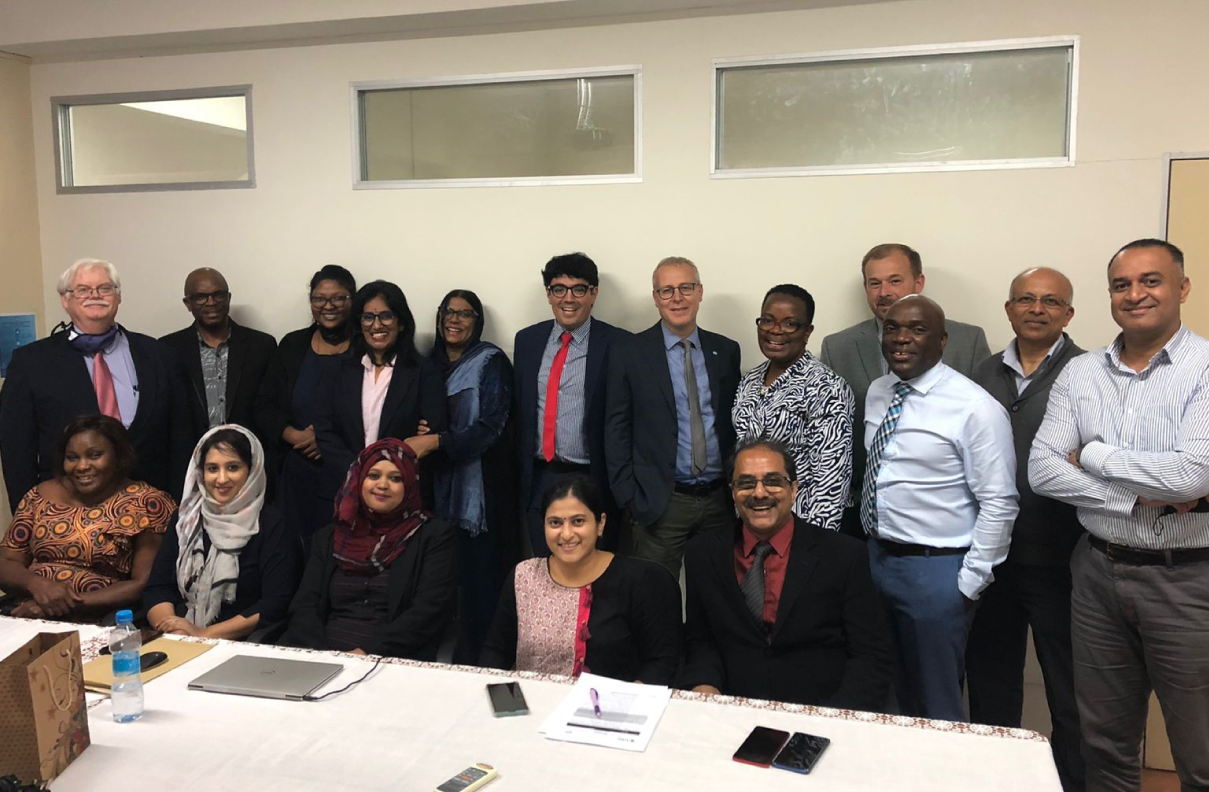
The Re-Evaluation of MAURITAS by the African Accreditation Cooperation (AFRAC) and the Southern African Development Community Cooperation in Accreditation (SADCA) on behalf of the International Laboratory Accreditation Cooperation (ILAC) International Accreditation Forum (IAF) took place on 13 to 17 June 2022. The aim of the Re-Evaluation was to evaluate the continued international recognition of MAURITAS accreditation for Testing (ISO/IEC 17025), Calibration (ISO/IEC 17025) and Management System Certification (17021) in the sub-scopes Quality Management System (QMS – ISO 9001) and Food Safety Management System (FSMS – ISO 22000).
The composition of the Evaluation Team was as follows:
|
SN |
Name |
Organisation |
Position in Evaluation Team |
|
1 |
Ms. Susan Munyiri-Ochieng |
Kenya Accreditation Service (KENAS) |
Team Leader |
|
2 |
Mr. Shadrack Phophi |
South African National Accreditation System (SANAS) |
Deputy Team Leader and Team Member – Testing |
|
3 |
Mr. Neville Tayler |
South African National Accreditation System (SANAS) |
Team Member – Calibration |
|
4 |
Mr. Moslem Barrack |
Tunisian Accreditation Council (TUNAC) |
Team Member – Certification (QMS & FSMS) |
|
5 |
Mr. Sam Thema |
South African National Accreditation System (SANAS) |
Trainee Team Member – Calibration |
|
6 |
Mrs. Felista Nyakoe |
Kenya Accreditation Service (KENAS) |
Trainee Team Member – Certification (QMS & FSMS) |
|
7 |
Mr. Emanuele Riva |
L’Ente Italiano di Accreditamento (ACCREDIA) |
ILAC/IAF Observer – Certification |
|
8 |
Mrs. Dana Leaman |
National Voluntary Laboratory Accreditation Program (NVLAP) |
ILAC/IAF Observer – Calibration |
|
9 |
Mr. Rob Miller |
American Association for Laboratory Accreditation (A2LA) |
ILAC/IAF Observer – Testing |
MAURITAS successfully cleared all the findings raised by the Evaluation Team and consequently its signatory status within AFRAC was approved during the AFRAC General Assembly on 30 September 2022 in Cairo, Egypt.
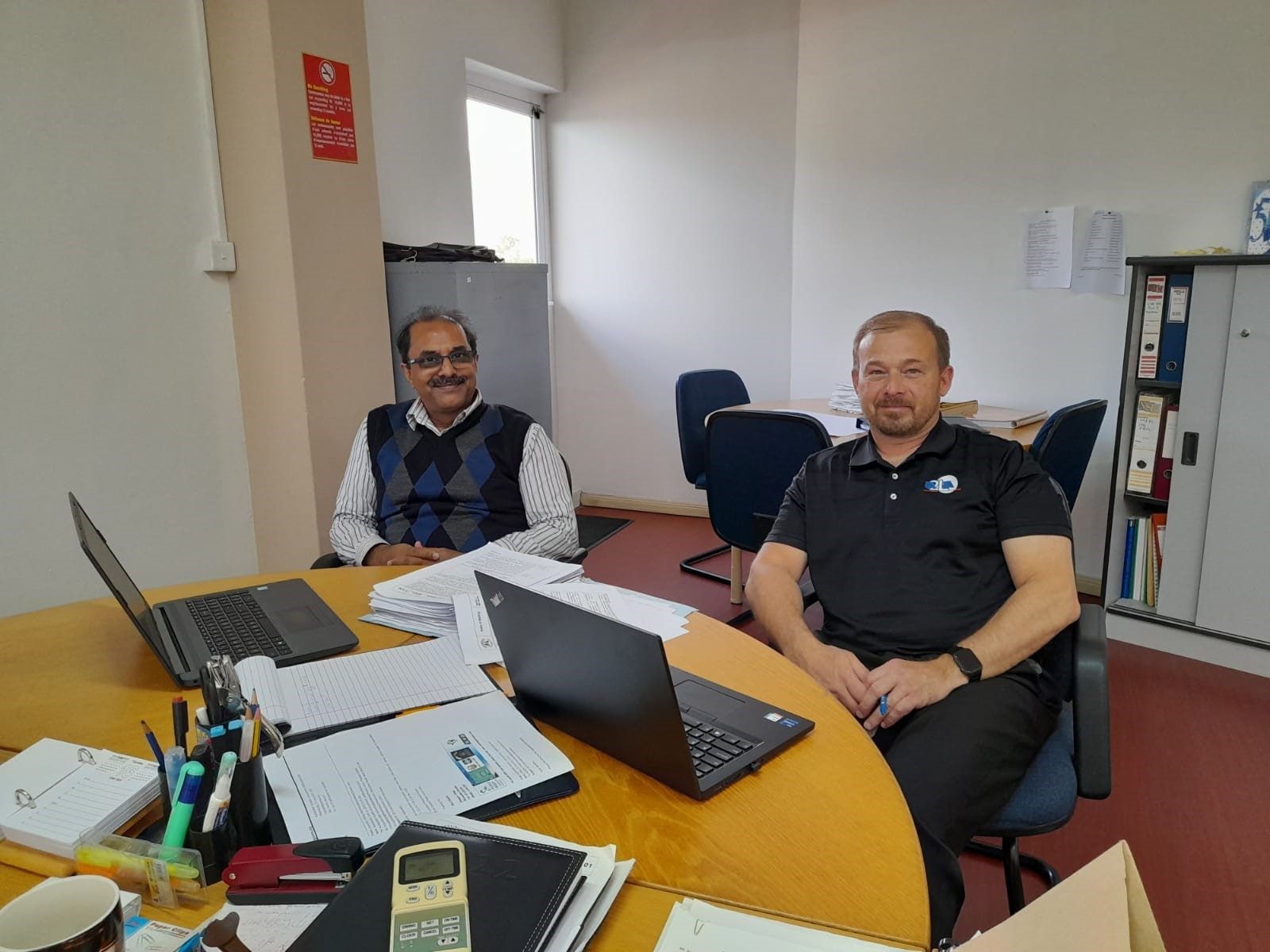
Mr. R.N. Gopee (Director, MAURITAS) and Mr. R. Miller (ILAC/IAF Observer – Testing)
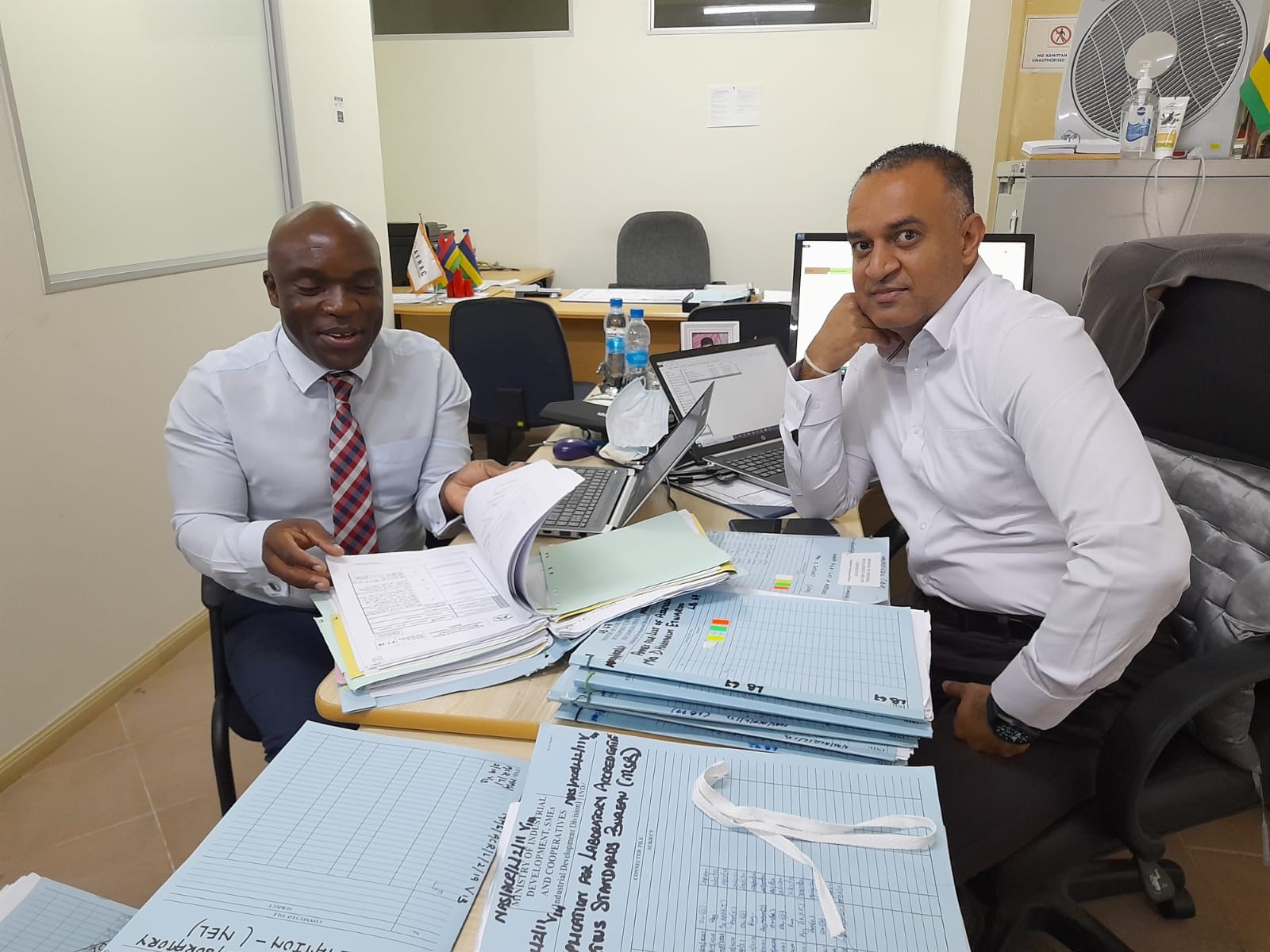
Mr. S. Phophi (Deputy Team Leader and Team Member – Testing) and Mr. M. Koolwont (Accreditation Manager, MAURITAS)
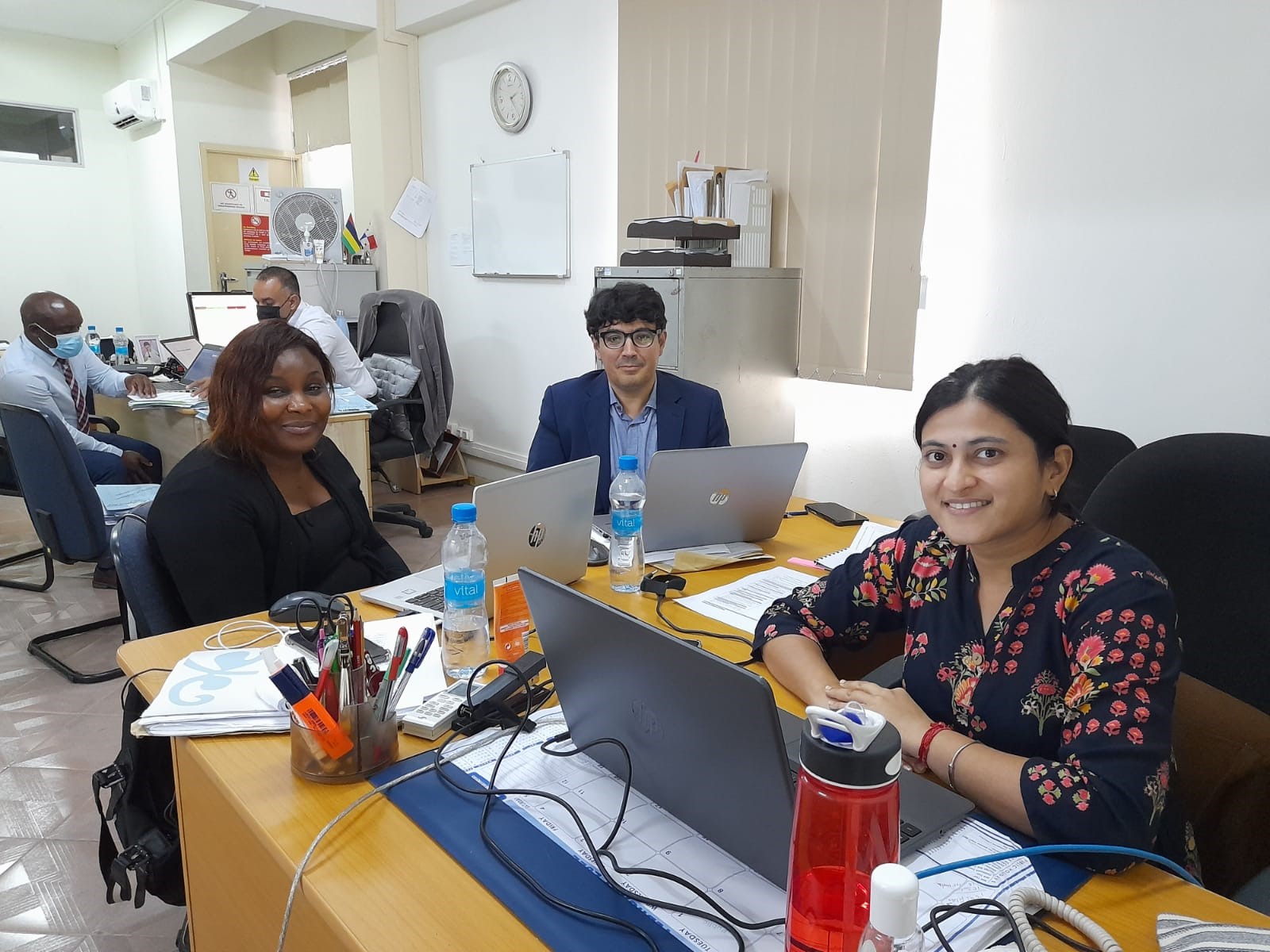
Mrs. F. Nyakoe (Trainee Team Member – Certification for QMS & FSMS), Mr. M. Barrack (Team Member – Certification for QMS & FSMS) and Mrs. C. Matadeen-Domun (Assistant Accreditation Manager – MAURITAS)
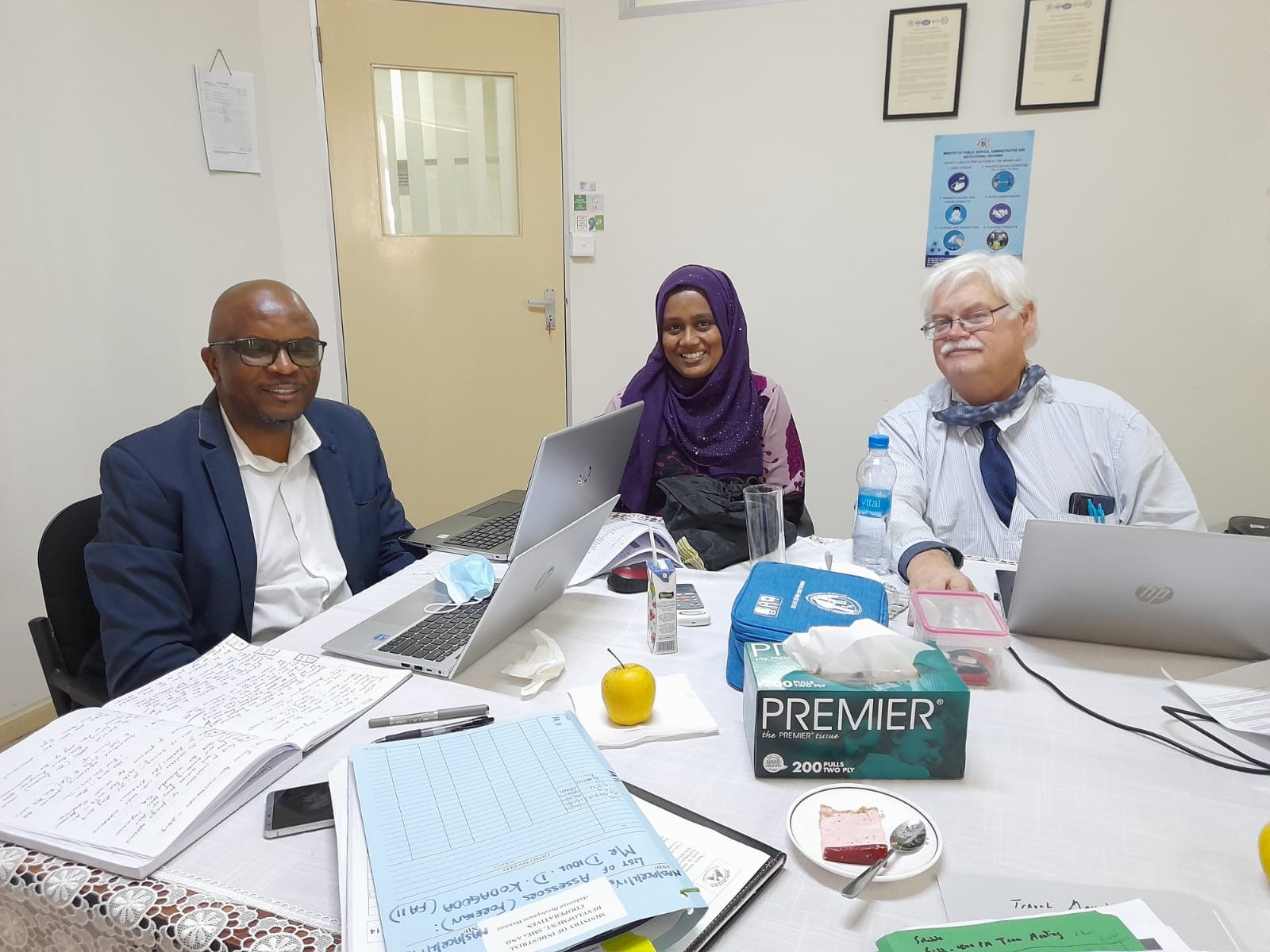
Mr. S. Thema (Trainee Team Member – Calibration), Mr. N. Tayler (Team Member – Calibration) and Mrs. Y. Jafajul (Ag. Assistant Accreditation Manager – MAURITAS)
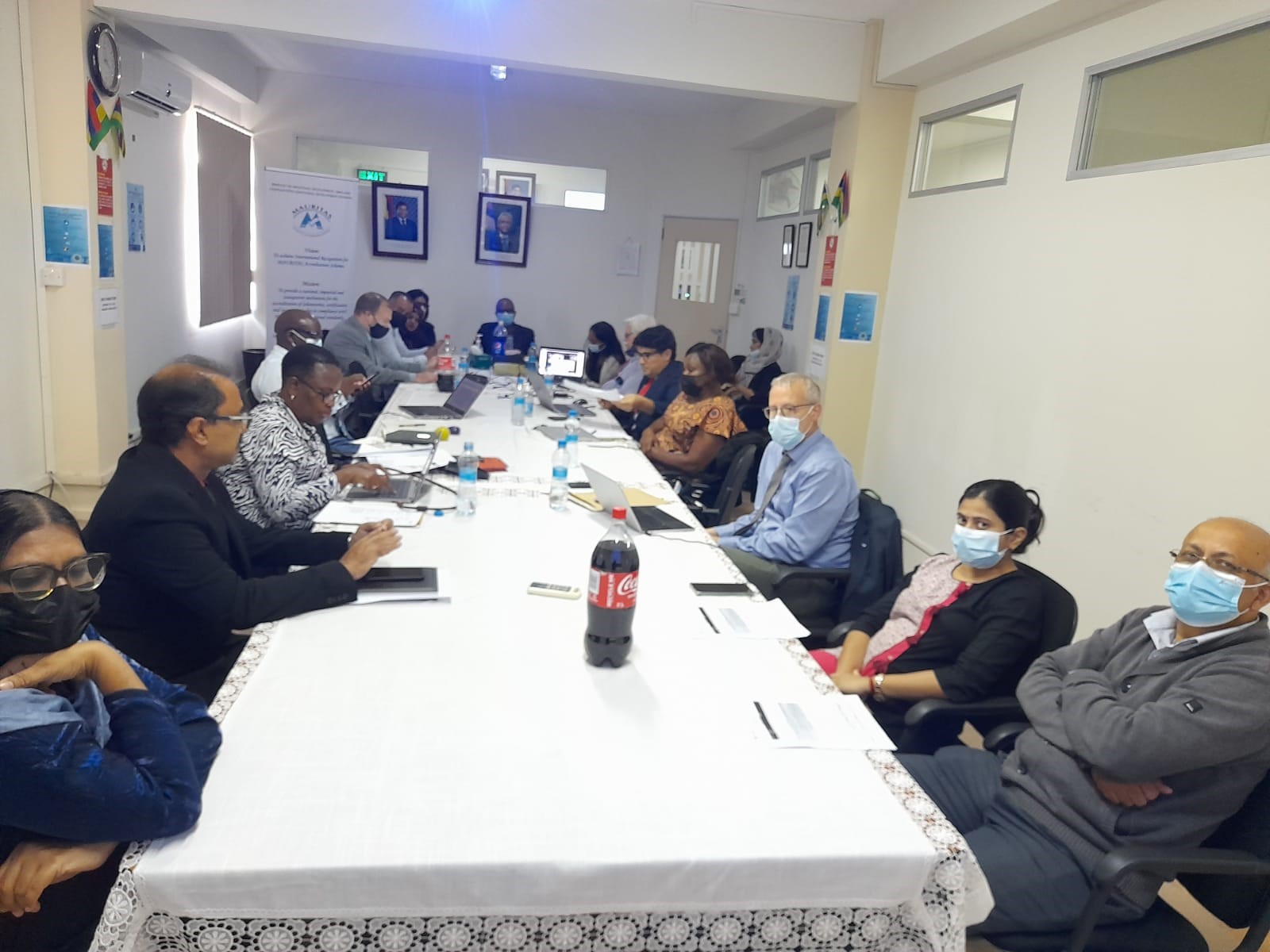
Closing meeting of the MAURITAS Re-Evaluation
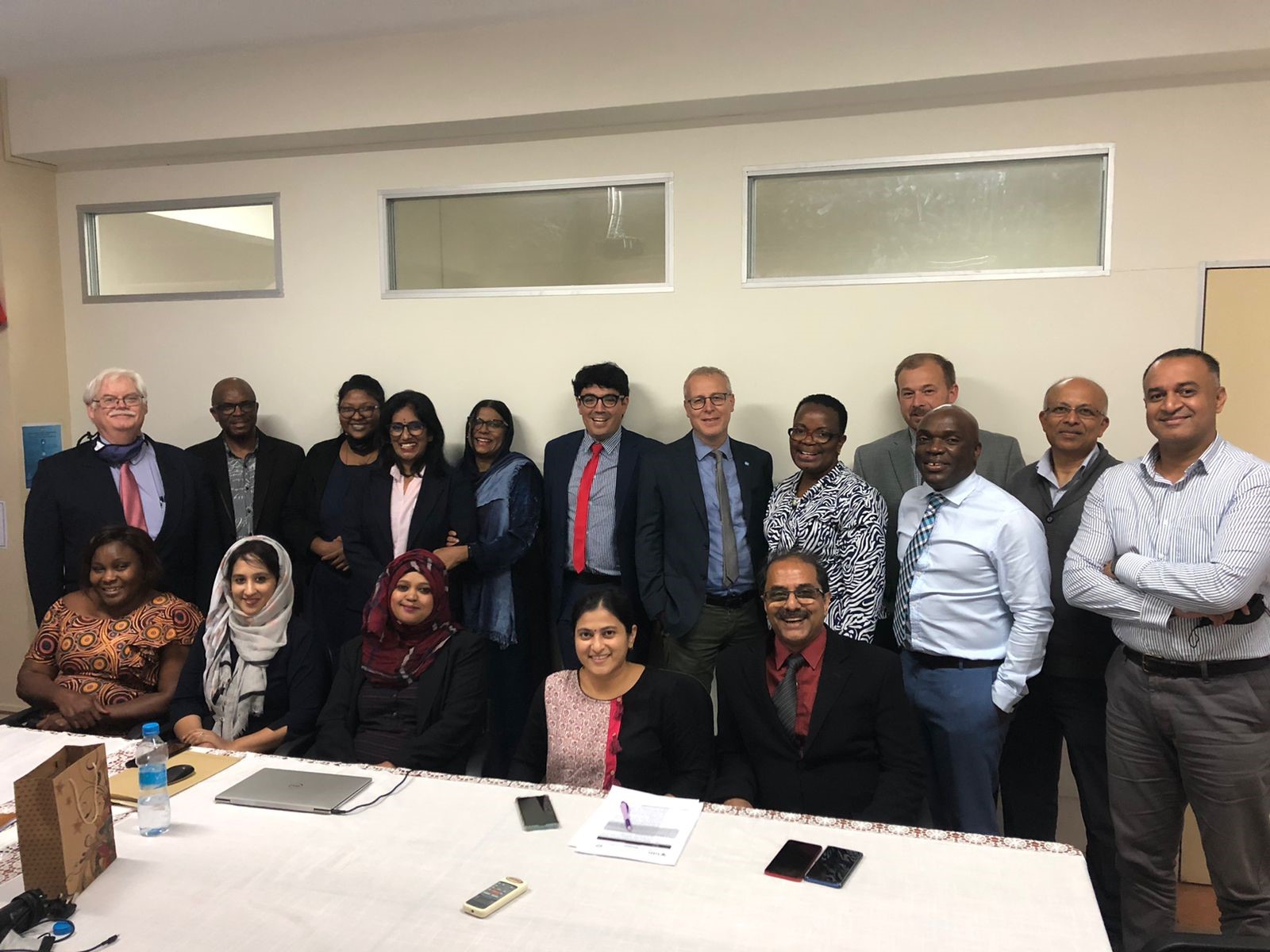
The Evaluation Team members with staff of MAURITAS
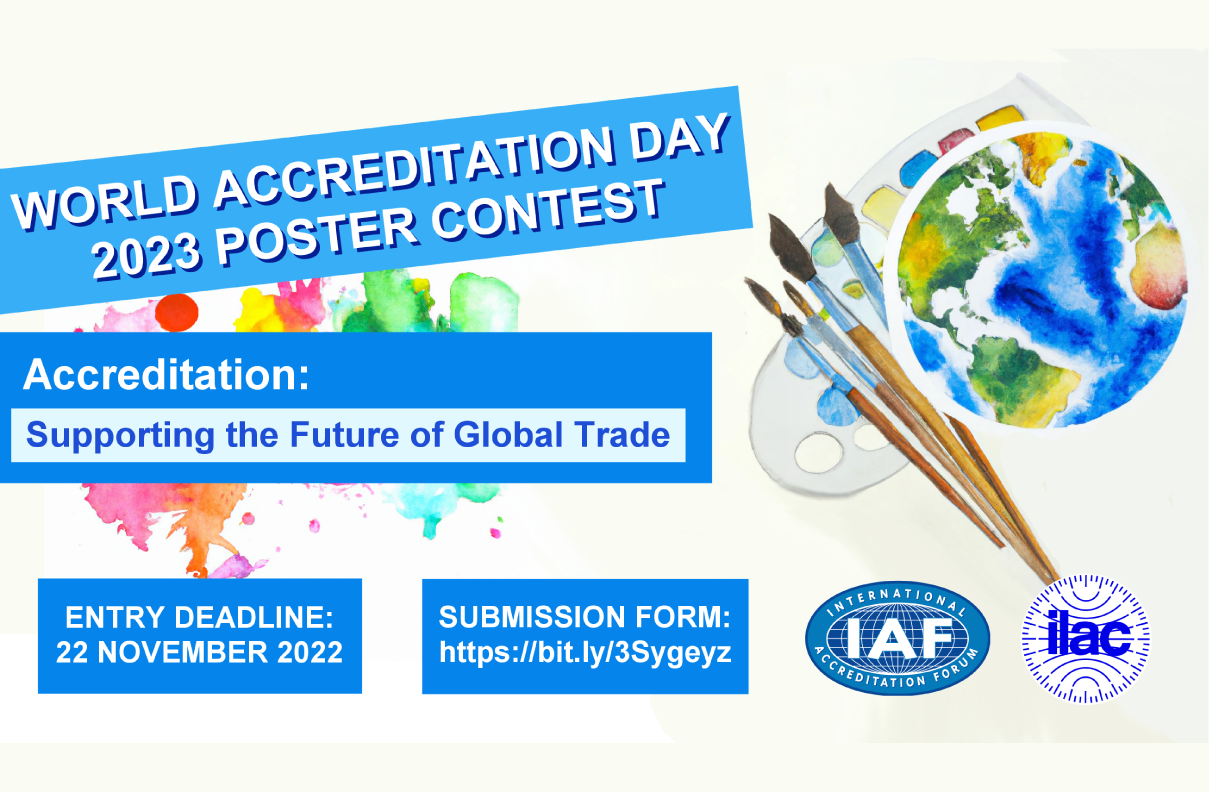
Each year on 09 June, IAF and ILAC celebrate World Accreditation Day (WAD) with our members, partners, stakeholders and other organizations in the field of conformity assessment. We’re excited to announce the theme for WAD 2023 as Accreditation: Supporting the Future of Global Trade.
This theme will showcase how accreditation and accredited conformity assessment activities support the ongoing global supply chain restructuring that continues to be a source of trade normalization as firms seek new markets and investment opportunities to build resilient and flexible supply chains. This is likely to reinforce long-term growth in multilateral and bilateral trade relationships and augment the value of the ILAC/IAF mutual recognition arrangements in promoting greater supply chain efficiency and resilience.
The theme encompasses a wide variety of Sustainable Development Goals (SDGs), including SDG 1: No Poverty; SDG 2: Zero Hunger; SDG 3: Good Health and Well-Being; SDG 5: Gender Equality; SDG 8: Decent Work and Economic Growth; SDG 9: Industry, Innovation and Infrastructure; SDG 10: Reduced Inequalities; SDG 14: Life Below Water; and SDG 17: Partnerships for the Goals. Case studies and research on benefits that accreditation can provide in support of the SDGs are available on the Public Sector Assurance and Business Benefits websites.
The IAF and ILAC poster contest to develop the official WAD 2023 poster will commence 26 October 2022, with a submission deadline of 23:59 UTC on 22 November 2022. All interested parties are welcome to explore our theme of Accreditation: Supporting the Future of Global Trade with up to three entries. The contest winner will receive USD 1,500, while the two runners-up will receive USD 500 each.
The contest rules, including instructions for how to submit entries, are available here. Read about last year’s winner here and runners-up here.
We look forward to receiving your submissions!

Standards and conformity assessment provide the tools to deliver trust and confidence about the environment in which we live. But what happens when this environment changes? Accelerated by the COVID-19 pandemic, digitalization has fundamentally altered the way we live, work and relate to each other. Conformity assessment actors have had to develop alternative ways of working based on AI, machine learning, remote auditing, constant data exchange and much more.
For this year’s ISO’s Annual Meeting being held from 19-23 September 2022, IAF, ILAC and ISO have collaborated to organize the virtual session ‘Has Covid launched the digital transformation of conformity assessment?’. The session will be moderated by Marcus Long (Chief Executive, Independent International Organisation for Certification and IAF Conformity Assessment Body Advisory Committee Chair), with panellists including Sheronda Jeffries (Technical Leader, Cisco Systems and IAF User Advisory Committee Vice-Chair), Amina Ahmed (Arab Accreditation Cooperation Chair and Chief Executive, Emirates International Accreditation Centre), Pavel Castka (Professor, University of Canterbury) and Eve Christine Gadzikwa (Chief Executive, Southern African Development Community Accreditation Services). H.E Omar Suwaina Al Suwaidi (Under-Secretary, United Arab Emirates Ministry of Industry and Advanced Technologies) will deliver opening remarks.
The session will highlight topics such as how conformity assessment can help to enhance trust in ISO standards; how processes used during pandemic lockdowns have continued to deliver audits and assessments; how services such as accreditation, certification, testing, inspection, and validation and verification can continue to ensure trust is maintained during periods of accelerating change; key techniques and tools that will see digitalisation, data use and new technology play a more crucial role in conformity assessment; and the needs of conformity assessment users as the delivery of conformity assessment evolves.
The session will be held on 20 September from 18:00-19:00 GST (UTC+4). More information and registration are available here.

We welcome Uzbek Center for Accreditation (O’ZAKK), Uzbekistan, as a Full Member of ILAC.
O’ZAKK joined ILAC as an Affiliate member on 19 March 2018 and then became an Associate Member on 15 April 2020. As O’ZAKK is a signatory to the APAC MRA for the accreditation of calibration and testing laboratories using ISO/IEC 17025, O’ZAKK has also been granted signatory status to the ILAC MRA and therefore, Full membership of ILAC.
We welcome O’ZAKK as a Full Member and look forward to working with our O’ZAKK colleagues.
The full list of signatories to the ILAC MRA is available here.

The International Telecommunications Union (ITU), the International Accreditation Forum (IAF) and ILAC have reviewed and re-signed the Memorandum of Understanding (MoU). The re-signing of the ITU-IAF-ILAC MoU continues to support and strengthen the three organizations’ commitment to cooperation and collaboration and the ongoing development of ITU-T’s Conformity and Interoperability (C&I) programme.
Further details and the MoU are available here.